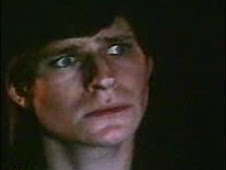 Probably at the top of most Netflix queues, Helvetica is a fascinating documentary about the font Helvetica. Seriously. And I watched it, proving to myself that I will watch anything.
Probably at the top of most Netflix queues, Helvetica is a fascinating documentary about the font Helvetica. Seriously. And I watched it, proving to myself that I will watch anything.You seem like you're being sarcastic. Fonts are fascinating - Arial, Comic Sans and the perennial favorite, Wingdings 2.
Agreed, that's why I watched it and it was fascinating. Amazingly so. I just don't think everyone feels that way but this has something to appeal to nearly everyone, not just nerds like me who used to create their own fonts. (My favorite was named Turtle.)
That certainly is nerdy and weird but you've got nothing on the font freaks in this film. These people live, breathe and eat fonts all day long and make references to art movements and font progenitors that nobody outside of this small circle of oddballs has heard about. And they're so passionate about it. One of my favorite interviewees was the guy who badmouths the crazy, campy 50s font styles and sees Helvetica as our savior, ushering us into Modernism. He believes Helvetica is the ideal style for letters and numbers as opposed to the guy who sees Helvetica as an example of all that is wrong with modern society, a sort of ubiquitous, junk food-style McDonald's of the typesetting world.
If I'm not mistaken, I believe one woman even blamed Helvetica for causing the Iraq War.
She did indeed.
I also loved the interview with David Carson and it was lovely revisiting the madness of his long forgotten Raygun magazine with its insane font explosions and experimental layouts. His ideas are a wonderful example of the viewpoints on the other end of the spectrum, where things are not so elegant and simple and perfect.
The film did a fantastic job balancing the various views and uses of Helvetica giving voice to both proponents and detractors. I give it a 7 as it was informative and not nearly as boring as one might think it could be.
I was shocked to see that Helvetica is used everywhere, from IRS forms to NY subway stops to American Apparel ads. It's unavoidable and inescapable and a blank slate for people to use for whatever means they want to and in turn Helvetica ends up reflecting their personalities and backing up their viewpoints. Some see it as a result of the rise of Capitalism while other see it as a Socialist font. It is the rock and roll of fonts - Born in the 50s, perfected in the 60s, blown out in the 70s and 80s, revived in the 90s and part of the universal social fabric in the present age.
So where Max Miedinger and Eduard Hoffman are the Buddy Holly and Chuck Berry of fonts, Arthur Ritzel is the Beatles?
Exactly.









No comments:
Post a Comment